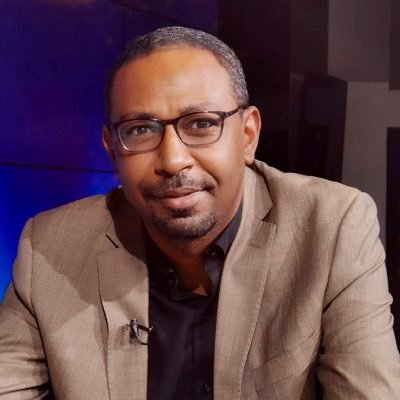Opinion
U.S. Sanctions on “Hemedti” and the Charge of Genocide in Sudan

By: Amjad Farid
In a significant move, the U.S. Department of the Treasury, through the Office of Foreign Assets Control (OFAC), announced on January 7, 2025—just days before the Biden administration leaves the White House—the imposition of sanctions on Mohamed Hamdan Dagalo Musa, known as “Hemedti,” the leader of Sudan’s Rapid Support Forces (RSF), under Executive Order No. 14098.
These sanctions target Hemedti for his role in destabilizing Sudan and committing gross human rights violations, including genocide, war crimes, and ethnic cleansing in Darfur.
U.S. Secretary of State Antony Blinken declared that the acts and crimes committed by the RSF have been classified as genocide in Sudan—a legal designation with significant consequences.
Under Hemedti’s leadership, the RSF committed widespread violations, including sexual violence, ethnically motivated killings, and systematic deprivation of humanitarian aid to civilians. Deputy Treasury Secretary Wally Adeyemo emphasized the U.S.’s commitment to holding perpetrators accountable, stating that these sanctions aim to protect Sudanese civilians and support the country’s democratic transition.
Legal Implications of Genocide Designation
The designation of the RSF as perpetrators of genocide is a critical legal development, binding the international community to act under various international frameworks, including:
1. The 1948 Genocide Convention
This convention defines genocide and obligates states to prevent it and prosecute those responsible. It includes acts such as killing, causing severe physical or mental harm, or forcibly transferring children, committed with the intent to destroy a national, ethnic, racial, or religious group.
The convention establishes universal jurisdiction, enabling states to prosecute genocide perpetrators regardless of where the crime occurred.
2. International Criminal Law Frameworks
International Criminal Court (ICC): Established under the Rome Statute (1998), the ICC prosecutes genocide, war crimes, and crimes against humanity when national systems are unwilling or unable to do so.
Ad hoc tribunals: Courts like the International Criminal Tribunal for Rwanda (ICTR) and the International Criminal Tribunal for the former Yugoslavia (ICTY) have addressed genocide and related crimes.
Hybrid courts: Examples include Cambodia’s Extraordinary Chambers, blending domestic and international systems to address mass atrocities.
3. Customary International Law
Even states not party to the Genocide Convention are bound by customary international law, which prohibits genocide as a peremptory norm (jus cogens).
4. The Responsibility to Protect (R2P)
Adopted in the 2005 UN World Summit Outcome Document, R2P outlines three core principles:
States are responsible for protecting their populations from genocide, war crimes, ethnic cleansing, and crimes against humanity.
The international community must assist states in fulfilling this responsibility.
If a state fails, the international community can intervene diplomatically, humanitarianly, or militarily, often with UN authorization.
5. UN Mechanisms
UN Security Council: Can authorize measures, including sanctions or military intervention, under Chapter VII of the UN Charter to prevent or halt genocide.
Human Rights Council and Special Procedures: Investigates and reports on genocide risks through commissions and special rapporteurs.
UN Office on Genocide Prevention: Provides early warnings and policy advice to prevent genocide.
6. State Responsibility and Accountability
Under the International Law Commission’s “Articles on Responsibility of States for Internationally Wrongful Acts” (ARSIWA), states can be held accountable for complicity in genocide through direct support or failure to prevent it.
Sudan and the Urgency for Action
The genocide recognition in Sudan puts immense pressure on the international community to act urgently. The U.S. acknowledgment of RSF atrocities as genocide reframes the Sudanese conflict from a domestic armed struggle to an international legal matter requiring decisive intervention.
Historically, genocide recognition has prompted significant international actions:
Bosnia (1995): The Srebrenica massacre’s designation as genocide led to increased military and diplomatic intervention, culminating in the Dayton Peace Agreement.
Rwanda (1994): Despite delayed action, genocide recognition resulted in the establishment of the ICTR, prosecuting top perpetrators.
Darfur (2004): U.S. labeling of Darfur atrocities as genocide led to the UN-African Union Mission in Darfur (UNAMID) and ICC warrants for Omar al-Bashir.
Legal Prosecutions and Expanded Sanctions
Acknowledging genocide in Sudan obligates the international community to:
1. Prosecute perpetrators: The ICC or a special tribunal could hold Hemedti and other RSF leaders accountable.
2. Broaden sanctions: Targeting financial and logistical networks supporting the RSF.
3. Diplomatic isolation: Pressuring regional allies, such as the UAE and Chad, to end their support for RSF-linked networks.
Addressing Root Causes and Long-Term Solutions
While sanctions and legal designations are essential, sustainable solutions require addressing the conflict’s root causes, dismantling the RSF’s economic and political networks, ensuring justice for victims, and addressing the issue of local fighters and foreign mercenaries deployed across Sudan.
This demands robust collaboration between the international community, Sudanese government, and national civil forces to pave the way for democratic transition and the establishment of institutions capable of protecting citizens and upholding their rights.
A Call for Action
Recognizing genocide in Sudan is not merely a legal classification but a call for action. The international community’s ability to respond decisively will determine whether justice is delivered to victims or impunity prevails.
All eyes are on Sudan, where humanitarian and political interests intersect. At this crossroads, the hope is that this moment marks the beginning of the end of the suffering endured by a people long betrayed, neglected, and ignored.



